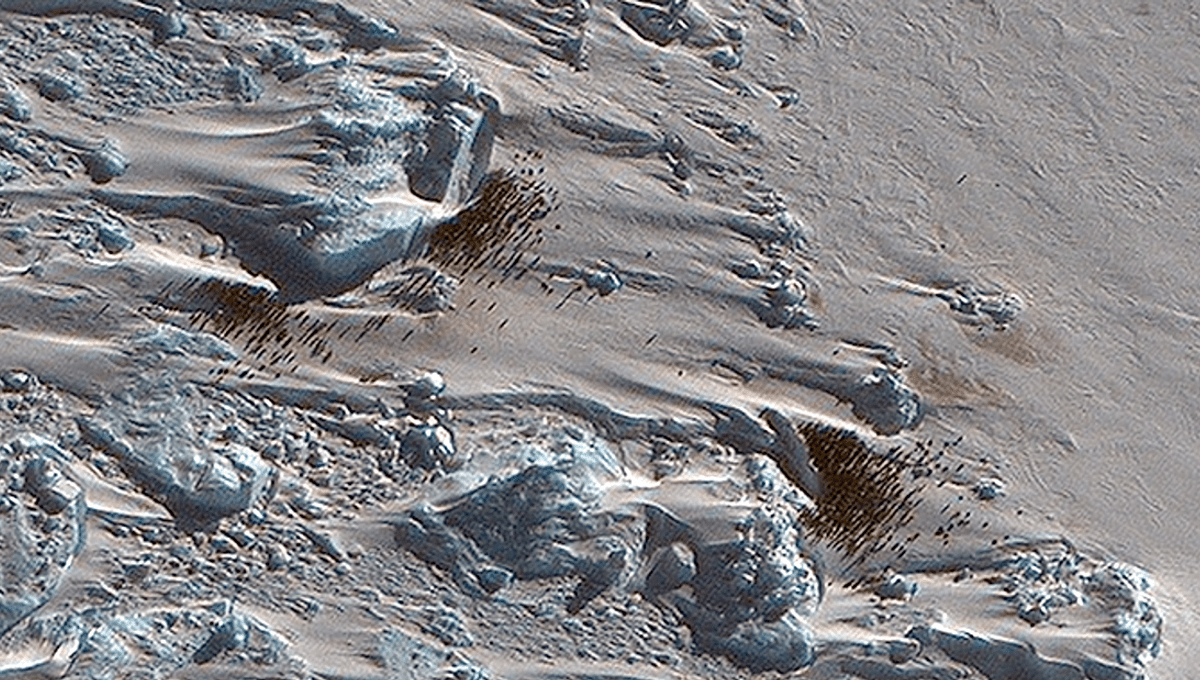
If you want to spot something black and white in a huge surrounding area of things that are largely black and white then you might think you’d have more luck with that needle in the haystack. Fortunately, the team at the British Antarctic Survey (BAS) have a few tricks up their sleeves.
To find penguin colonies on the ice, the team have developed a method that uses satellite imagery. Penguin poop, or guano, is brown, which means it can be spotted easily in the ice and rock of Antarctica. Spotting the poop from space may have an added benefit of preventing the researchers from getting the giggles, since penguin poop has high levels of nitrous oxide.
The newest colony to be found via satellite at Verleger Point, West Antarctica, is thought to have around 500 penguins, and its discovery brings the total of known emperor penguin colonies around the coastline up to 66. Scientists have used this method not just on Emperor penguins (Aptenodytes forsteri) but on Adélie penguins (Pygoscelis adeliae) in the Antarctic as well.
“This is an exciting discovery. The new satellite images of Antarctica’s coastline have enabled us to find many new colonies. And whilst this is good news, like many of the recently discovered sites, this colony is small and in a region badly affected by recent sea ice loss,” said Dr Peter Fretwell, who studies wildlife from space at BAS, in a statement.
Copernicus Sentinel-2 is a satellite mission run by the European Space Agency that has been collecting images of Antarctica since 2016. Exactly half the 66 colonies known in Antarctica have been found using satellite mapping technology, which the team have been using for over 16 years.
While this is good news, emperor penguins are vulnerable to the loss of sea ice. With the ongoing effects of climate change, predictions suggest that these colonies could be going extinct by the end of the century.
“With current projections of climate change, this habitat is likely to decline. The most recent projects suggest that, under current warming trends, 80% of colonies will be quasi-extinct by the end of the century” continued Dr Fretwell.
Source Link: New Emperor Penguin Colony Spotted From Space Thanks To Their Poop